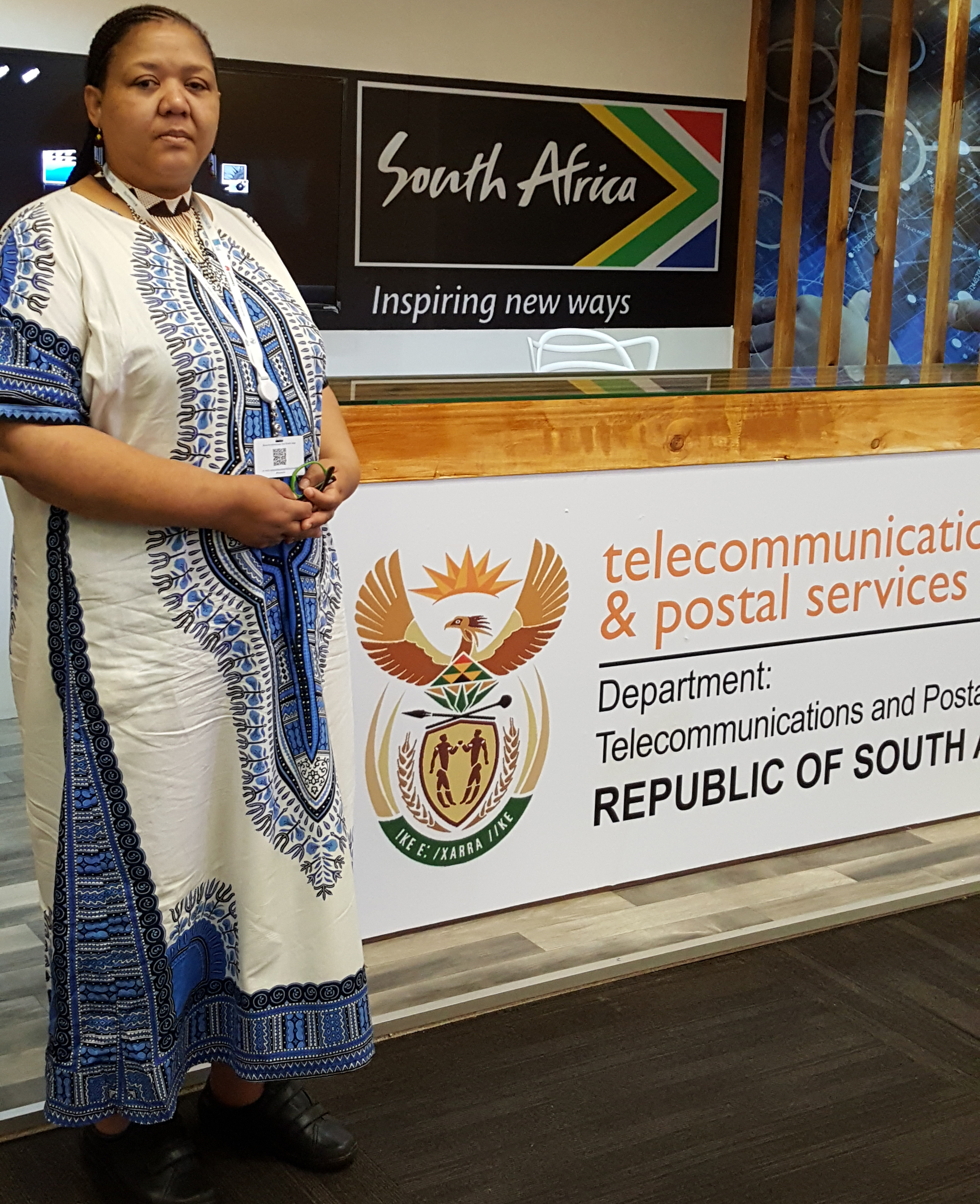Executive Spotlight Interview: Ingrid Poni, Chief Director, Multilateral Trade, Department of Telecommunications, Republic of South Africa
Durban, South Africa, September 15, 2018--At the ITU Telecom World in Durban, Satellite Executive Briefing correspondent Roxana Dunnette spoke with INGRID PONI, Chief Director, Multilateral Trade and International Unit of the Department of Telecommunications and Postal Services, Republic of South Africa.
 How significant is this event especially that it is being held on Nelson Mandela’s 100 year anniversary?
How significant is this event especially that it is being held on Nelson Mandela’s 100 year anniversary?
Ingrid Poni (IP): It is very special to us because this is the first time it is taking place in Africa, at a time when we are dealing with lots of new technologies with the onset of 4th Industrial Revolution. As you are well aware, we are now looking at the deployment of so many new technologies, including 5G. Also for the second time, we have a lot of SMEs participating, and the youth are also involved.
As we can see Small and Medium Enterprises (SMEs) have central role here. What is the impact of South Africa’s SMEs in the global picture?
IP: The SMEs have a hard time getting noticed due to limited resources. ITU is leading their involvement and as we go forward, new partnerships are being formed. We do not want to have only big companies and monopolies, but we are encouraging diversity of players through SMEs. This is important in growth and innovation because SMEs have a lot of fresh ideas but many times, they do not have a space where they can showcase their technologies. So ITU is offering them a venue and a platform to display their skills.
In our country, we recently passed a legislation to empower SMEs. In Busan, Korea (the last ITU World Telecom) the government sponsored many SMEs and they did well and they even got some awards, like this time.
South Africa is a leader in ICT implementation and a continental service provider. Do you rely mostly on terrestrial or satellite transmission to provide connectivity?
IP: We rely mostly on terrestrial technologies for connectivity, but because we see that there are a lot of challenges, we are also thinking of using satellites. A few years ago we launched our own satellite and we are now exploring new technologies to provide connectivity to everyone. We need to diversify our sources of connectivity and now we have numerous available technologies that could provide new and better solutions.
In this event we had a session on 5G and the satellite role was discussed.
For remote and rural areas do you have specific plans?
IP: In our country we have a strategy for rural areas that involve private-public partnerships. We provide incentives to companies going to rural areas. In terms of our laws, we give priority to those who include rural areas in their deployment of technologies. Companies have to include rural areas in their overall strategy.
We are very proud that this event was very widely supported by our brothers and sisters. Eighty percent of the exhibitors were from Africa and we had the largest number of ministers attending.
The public showed a lot of interest and we had the support at the highest level.





